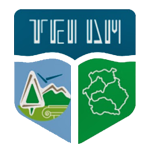|
Level: Type: |
Undergraduate (A+) |
 |
| Instructors: Georgios Charalampides | |
| Department: Department of Environment and Pollution Control Engineering TE | |
| Institution: TEI of Western Macedonia | |
| Subject: Earth and Related Environmental Sciences | |
| Rights: CC - Attribution-NonCommercial-NoDerivatives |